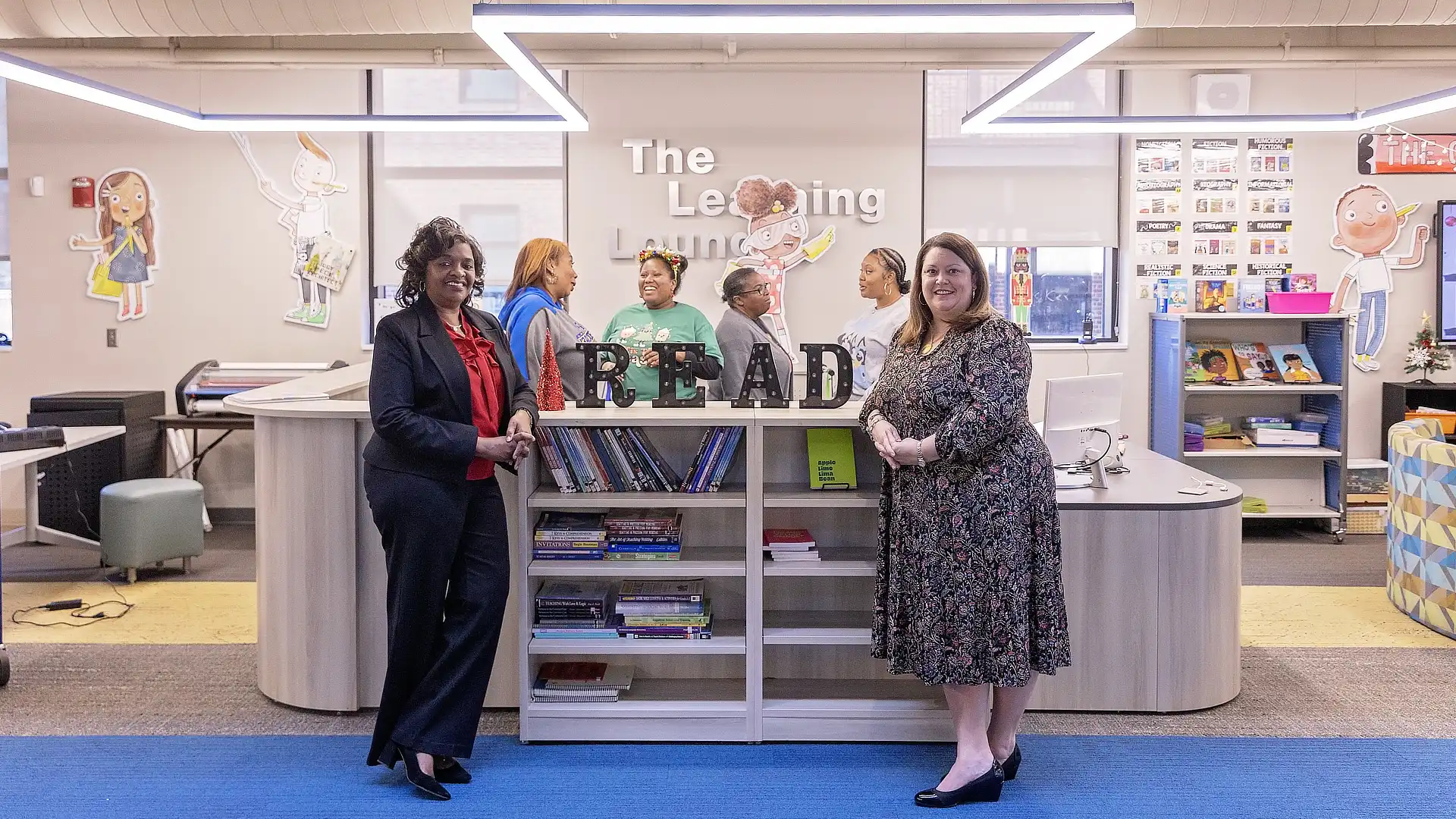At the heart of education lies a commitment to equipping every individual with the tools to succeed, both in and beyond the classroom. The i3 Academy Reading Fellows initiative, a collaborative effort between Samford University’s Orlean Beeson School of Education and i3 Academy, exemplifies this dedication. By focusing on support personnel such as paraprofessionals, the program sets a new standard for literacy instruction and classroom management training.
Kate Scarborough, assistant professor in Teacher Education, and Tarsha Shepard, associate professor in Teacher Education, serve as facilitators for this groundbreaking initiative. Their work supports paraprofessionals—individuals who provide vital instructional and management support in classrooms, also known as paraeducator, instructional aide or teacher aide—by giving them targeted, evidence-based training to enhance their impact on young learners.
A Vision Rooted in Service
The mission of the Reading Fellows initiative is to empower paraprofessionals in nurturing the growth of readers and writers while strengthening classroom management.
“Paraprofessionals are stewards of education,” said Scarborough, “Every adult in the school has the potential to influence student growth, and this program ensures paraprofessionals are equipped to do so effectively.”
Paraprofessionals are typically tasked with assisting students, especially those who need extra help, but may have limited training in literacy instruction. This program equips the paraprofessionals with the necessary instructional tools and management strategies that result in positive student outcomes.
Why the Program is Innovative
The Reading Fellows program stands out as an innovation in literacy education because it goes beyond the traditional training models.
“We bring the learning directly to the paraprofessionals,” explained Shepard. “Our approach is centered on coaching, not evaluation. We create a safe environment where paraprofessionals can take risks, learn, and grow without fear of judgment.”
The program introduces the Science of Reading, a research-based framework that focuses on decoding, language comprehension and reading comprehension. This emphasis ensures that paraprofessionals are equipped with practical strategies to support literacy development.
“We connect theory to practice,” Scarborough added. By providing tasks that they implement with students in their classrooms paras make connections between our sessions and their work with students.
Aligning with Samford’s Mission
The Reading Fellows initiative reflects the mission of the School of Education: to educate, lead and serve. By equipping paraprofessionals with evidence-based practices, the program not only advances literacy but also fosters leadership and service within the educational community.
Scarborough and Shepard recognize how high-quality preparation leads to positive outcomes for all students. This program fills a critical gap by providing innovative approaches for professional development.
The work of the Reading Fellows programs takes the world-renowned teaching practices of Samford and pours it out into the communities surrounding the university. The program is a testament to Samford’s recent Wall Street Journal ranking, which establishes the university as No. 8 in the nation for the quality of career preparation. A ranking which the School of Education exemplifies for students and non-students alike.
“As educators, our work is never done,” said Anna McEwan, Dean of Orlean Beeson School of Education, “Our goal and obligation is to prepare the best graduates in the fields of education and human development and family science, but it is also to extend our reach and expertise beyond our campus to make positive advances in these fields.”
Addressing Challenges and Building Confidence
Programs such as this, build confidence by providing knowledge and opportunities for paraprofessionals to practice literacy instructional strategies.
“Our first session focused on the structure of the English language,” Shepard said. “We covered consonant and vowel phonemes, sound articulation and letter name knowledge. This foundation builds paras’ confidence, allowing them to engage with their students.”
A Model for the Future
As the program continues, its leaders are optimistic about its future and broader implications.
“We’re on the cutting edge of something new,” said Shepard. “This flexible approach to teacher preparation could expand to include math or special education, addressing broader needs in schools.”
Scarborough added, “The request for a second year came directly from the paraprofessionals themselves. That speaks volumes about the value they see in this program.”
With plans to potentially engage other school partners or expand within i3 Academy, the Reading Fellows initiative is poised to influence how educators approach paraprofessional training statewide. A need that isn’t going away as the national teacher shortage rages on.
Ultimately, the Reading Fellows initiative demonstrates the profound impact that targeted, thoughtful training can have on education. By empowering paraprofessionals, the program ensures that every child has access to high-quality literacy instruction and educators have the support they need to succeed.

